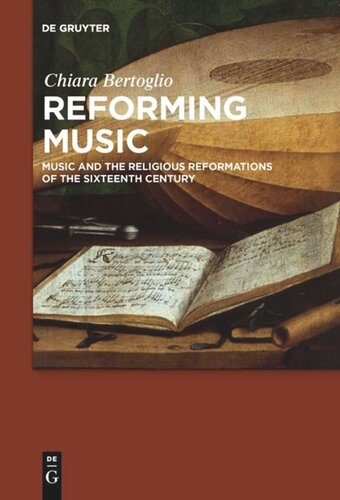

Most ebook files are in PDF format, so you can easily read them using various software such as Foxit Reader or directly on the Google Chrome browser.
Some ebook files are released by publishers in other formats such as .awz, .mobi, .epub, .fb2, etc. You may need to install specific software to read these formats on mobile/PC, such as Calibre.
Please read the tutorial at this link: https://ebookbell.com/faq
We offer FREE conversion to the popular formats you request; however, this may take some time. Therefore, right after payment, please email us, and we will try to provide the service as quickly as possible.
For some exceptional file formats or broken links (if any), please refrain from opening any disputes. Instead, email us first, and we will try to assist within a maximum of 6 hours.
EbookBell Team

4.3
98 reviewsWinner of the RefoRC Book Award 2017
Five hundred years ago a monk nailed his theses to a church gate in Wittenberg. The sound of Luther’s mythical hammer, however, was by no means the only aural manifestation of the religious Reformations.
This book describes the birth of Lutheran Chorales and Calvinist Psalmody; of how music was practised by Catholic nuns, Lutheran schoolchildren, battling Huguenots, missionaries and martyrs, cardinals at Trent and heretics in hiding, at a time when Palestrina, Lasso and Tallis were composing their masterpieces, and forbidden songs were concealed, smuggled and sung in taverns and princely courts alike.
Music expressed faith in the Evangelicals’ emerging worships and in the Catholics’ ancient rites; through it new beliefs were spread and heresy countered; analysed by humanist theorists, it comforted and consoled miners, housewives and persecuted preachers; it was both the symbol of new, conflicting identities and the only surviving trace of a lost unity of faith.
The music of the Reformations, thus, was music reformed, music reforming and the reform of music: this book shows what the Reformations sounded like, and how music became one of the protagonists in the religious conflicts of the sixteenth century.